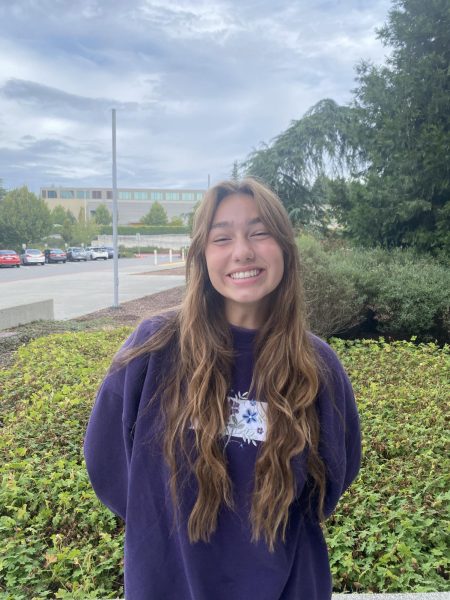Road to Children’s COVID Vaccinations
November 24, 2021
The ever-controversial topic of vaccines has found a new branch in vaccinating children against COVID-19. With the FDA’s recent authorization, decisions are being made rapidly from schools and parents as to whether their students and children should receive this buffer of security against the COVID-19 virus.
Parents fall under a diverse meter of concern towards vaccinating their children. One might think that “safety” would mean children being protected against COVID, but a report from the Kaiser Family Foundation states that “parents’ main concerns when it comes to vaccinating their younger children ages five-11 have to do with potential unknown long-term effects and serious side effects of the vaccine.” More specifically the article says “Two-thirds are concerned the vaccine may affect their child’s future fertility.” Hence this issue is becoming a lasting conversation. Further, the Kaiser article says “Some parents also express concerns related to information barriers to vaccination.” This emphasizes the importance of talking about vaccines and breaking a cycle of ignorance, which begins in a family setting. Junior Ellie Roberts says, “Most of what I know about the COVID vaccine situation comes from my mom, who works in healthcare and was part of the first waves of vaccinations. She made sure my family understood how vaccines worked when COVID vaccinations started happening.” Roberts continues, adding, “I have a younger sibling who is almost nine. I’m very excited for her to be vaccinated because I will worry less about her safety and health.”
The income of parents should be recognized, as it is also affecting the number of kids who will be vaccinated. Kaiser presents a slew of dilemmas, stating, “51% of lower-income parents are concerned about missing work to deal with children’s vaccinations, 45% about having to pay out-of-pocket to get their child vaccinated, 48% worry about not being able to get the vaccine from a trusted place, and 38% anticipate having difficulty traveling to a vaccination location.” With this information, it is vital that the vaccine is accessible for all people, regardless of a hindering lack of income.
However, some families are taking the optimistic approach to the developing vaccine. KFF says only three in 10 parents are stagnant in their refusal to vaccinate their children, meaning 70% are either eager or undecided. This state of ambivalence can be viewed as an opportunity to inform the public. The CDC recommends that schools be a catalyst for this. A statement from the CDC declared, “Schools and school districts are uniquely positioned to teach about, link to, or even deliver COVID-19 vaccines.” Examples include hosting a vaccine clinic (such as the one IHS held last Spring), arming staff with answers, and keeping COVID in the conversation. Freshman Amogh Desai says, “We haven’t been able to control the pandemic despite giving vaccines and having mask mandate, and it is starting to get necessary to give kids vaccines.”
A lengthy to-do list for vaccinating this age group is visible on National Public Radio. The final clinical trial for 5 to 11-year-olds was completed on Oct. 7. NPR explains, “The drug companies compile safety and efficacy data from their clinical trial and ask the FDA to extend the emergency use authorization for the vaccine to this age group.” These next steps are currently underway. Next, a series of votes for authorization will occur before it can be officially recommended by the CDC and become readily available to the public. Sophomore Will St Andre offered his opinion, saying, “I think there will be a certain amount of concern about the vaccines being unauthorized so far, there always has been, but I think overall it will be for the good of the public.” Senior Lelia Pedersen acknowledges how parents might be feeling, saying, “I think getting the vaccine approved by the FDA would make parents feel better, and that’s important to getting your kid vaccinated, is that families feel secure and safe.”
Pfizer has been a leading force in distributing vaccines. As of Oct. 7, Pfizer had submitted data to the government, officially asking the Biden administration to authorize the emergency use of their COVID-19 vaccine for children ages 5 to 11. A response to this request is yet to come, Pfizer began promoting their children’s vaccine on Oct. 7, with a kickoff message on Twitter, “With new cases in children in the U.S. continuing to be at a high level, this submission is an important step in our ongoing effort against #COVID19.”
Control over COVID has been fluctuating in instability as long as it has existed, and it will continue to waver. Taking the step of vaccinating kids will combat this, like Pedersen says, “Kids especially in unvaccinated states are the ones pushing the outbreaks because they’ll bring it home to their unvaccinated family, so being able to vaccinate your children can stop the spread in schools. Overall, in society we’ll head towards a more COVID free environment.”

